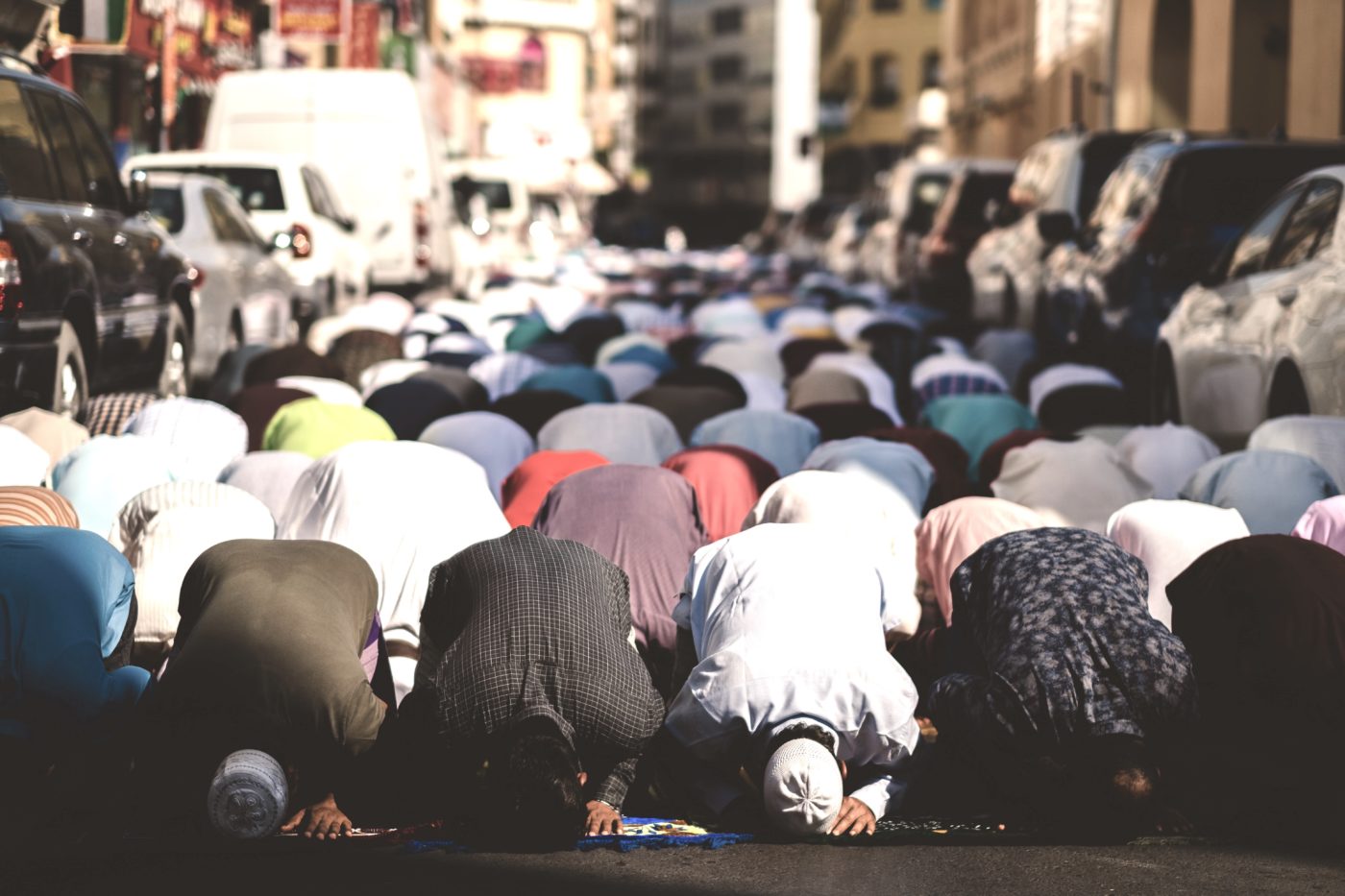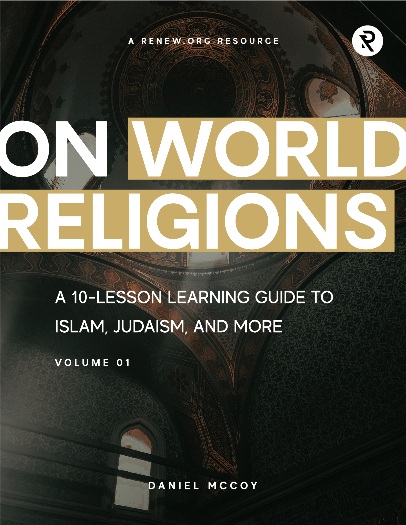
What Is Islam? The Basics of Islam in 10 Questions, 10 Definitions, and 10 Quotes
What are the basics of Islam? Islam is a religion based on submission to Allah as taught through prophets, most notably Muhammad (“Allah’s Apostle”). In their submission to Allah, Muslims prioritize “5 pillars,” which include a profession of faith, prayers, fasting, alms to the poor, and a pilgrimage to Mecca for those who are able. Islam is considered one of the major Abrahamic religions, as it recognizes biblical figures such as Adam, Abraham, Moses, David, and Jesus as prophets of Islam in their day. Muhammad received the Qur’an, the 144-sura (chapter) holy book, from the angel Gabriel. Islam is meant to be lived out in a Muslim community, and sometimes Muslim beliefs and practices are integrated into a nation’s legal system.
What are the basics of Islam? 10 Questions
- What does the word Islam mean? surrender/submission
- Who gave Muhammad verses to recite which were compiled to become the Qur’an? the angel Jibril/Gabriel
- After the people of Mecca rejected Muhammad’s call to submit to Allah (Arabic for God), persecution forced Muhammad to flee to what city? Yathrib/Medina
- This migration is the start of the Islamic calendar because it was in this new location that Muhammad began a properly constituted what? Islamic community
- Now a military leader with unified influence, Muhammad returned to Mecca in triumph and kept gathering tribes to his cause, until what region was entirely unified under Islam? Arabia
- Muhammad increasingly became seen as the ideal role model in every area of life, and, as such, details of his life and teaching were gathered into collections known as what? hadiths
- Although there are many biblical figures who are said to be prophets of Islam, who is the last of these prophets (the “seal” of the prophets)? Muhammad
- Which major group of Muslims traces its leadership through Muhammad’s physical descendants and is the smaller of the two major groups? Shia
- Which major group of Muslims believes Muhammad named no successor and is the larger of the two major groups? Sunni
- What day of the week, just after noon, is set aside for congregational ritual prayers in the mosque? Friday
What are the basics of Islam? 10 Definitions
- Sharia – the collected guidance given by Muslim scholars on how to live based on the Qur’an and the hadiths; sometimes integrated into a nation’s legal system
- Haram – actions which are forbidden according to Muslim law
- Imam – a prayer leader (in Sunni Islam) or (in Shia Islam) one of the twelve descendants of Muhammad chosen throughout history to lead Shia Islam
- Sufism – Islam’s tradition of mysticism which guides the soul into achieving union with Allah
- Shahada – the foundational affirmation in Arabic that “There is no god but Allah and Muhammad is his Messenger”
- Salat – daily ritual prayers expected to be performed 5 times a day (Sunni) or 3 times a day (Shia)
- Hajj – a pilgrimage to Mecca which is expected of faithful Muslims who have the means
- Zakat – giving alms, which is directed to specific purposes, including helping the poor
- Ramadan – the month devoted to fasting from food and drink from sunrise to sunset
- Fatwa – a ruling given by a religious scholar (mufti) to answer specific questions on Islamic law
What are the basics of Islam? 10 Quotes
Allah
“In the name of Allah, the Entirely Merciful, the Especially Merciful. [All] praise is [due] to Allah, Lord of the worlds—The Entirely Merciful, the Especially Merciful, Sovereign of the Day of Recompense. It is You we worship and You we ask for help. Guide us to the straight path—The path of those upon whom You have bestowed favor, not of those who have evoked [Your] anger or of those who are astray.”
—“Surah Al-Fatiha,” the opening Sura of the Qur’an
“God! There is no god but He—the Living, the Self-Subsisting, Eternal.”
—Section 1, “Āl-i-’Imrān, or The Family of ’Imrān” (Sura III), the Qur’an
The basics of Islam: “God! There is no god but He—the Living, the Self-Subsisting, Eternal.”
The Qur’an
“This is the Book. In it is guidance sure, without doubt, to those who fear God.”
—Section 1 of “Baqara, or the Heifer” (Sura II), the Qur’an
“And if ye are in doubt as to what We have revealed from time to time to Our servant, then produce a Sūra like thereunto; and call your witnesses or helpers (if there are any) besides God, if your (doubts) are true. But if ye cannot and of a surety ye cannot—then fear the Fire whose fuel is Men and Stones—which is prepared for those who reject Faith.”
—Section 3 of “Baqara, or the Heifer” (Sura II), the Qur’an
The basics of Islam: “If ye are in doubt as to what We have revealed from time to time to Our servant, then produce a Sūra like thereunto.”
“The Holy Qur’ān was revealed to the Prophet in words in the Arabic language through Gabriel, who is also called the Faithful Spirit and the Holy Spirit, the angel descending upon the heart of the Prophet.”
—“How Divine Revelation Came to the Holy Prophet,” Chapter 1, A Manual of Hadith, by Maulana Muhammad Ali
Other Faiths
We believe in God, and the revelation given to us, and to Abraham, Ismā’īl, Isaac, Jacob, and the Tribes, and that given to Moses and Jesus, and that given to (all) Prophets from their Lord: We make no difference between one and another of them: and we bow to God (in Islam).”
—Section 16 of “Baqara, or the Heifer” (Sura II), the Qur’an
The basics of Islam: “We believe in God, and the revelation given to us, and to Abraham, Ismā’īl, Isaac, Jacob, and the Tribes, and that given to Moses and Jesus.”
“When Jesus found unbelief on their part, he said: ‘Who will be my helpers to (the work of) God?’ Said the Disciples: ‘We are God’s helpers: We believe in God, and do thou bear witness that we are Muslims.’”
—Section 5, “Āl-i-’Imrān, or The Family of ’Imrān” (Sura III), the Qur’an
“Jihād means the exerting of one’s power in repelling the enemy or in contending with an object of disapprobation. It carries a twofold significance in Islām, being applied to both the purely missionary activities of a Muslim and his defense of the Faith, when necessary, in a physical sense.”
—“Jihad,” Chapter 19, A Manual of Hadith, by Maulana Muhammad Ali
Muhammad
“I heard Allah’s Apostle saying, ‘If there was a river at the door of anyone of you and he took a bath in it five times a day would you notice any dirt on him?’ They said, ‘Not a trace of dirt would be left.’ The Prophet added, ‘That is the example of the five prayers with which Allah blots out (annuls) evil deeds.’”
Hadith 1:506, Hadith of Bukhari
“There was a man who looked after the family and the belongings of the Prophet and he was called Karkara. The man died and Allah’s Apostle said, ‘He is in the (Hell) Fire.’ The people then went to look at him and found in his place, a cloak he had stolen from the war booty.”
Hadith 4:308, Hadith of Bukhari
2 Questions about Islam for Christians to Consider
- What is a significant similarity you notice between Islam and Christianity? What is a significant difference?
- Surrender and submission to God are worthy goals. Although Christianity teaches us to surrender and submit to God, what are additional important ways Christianity describes our relationship to God?








